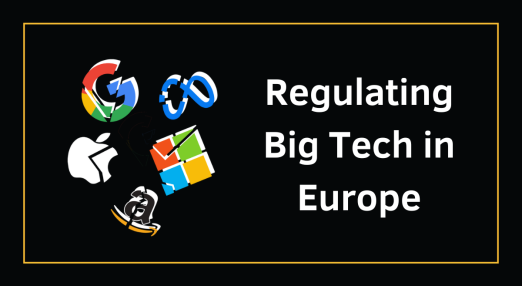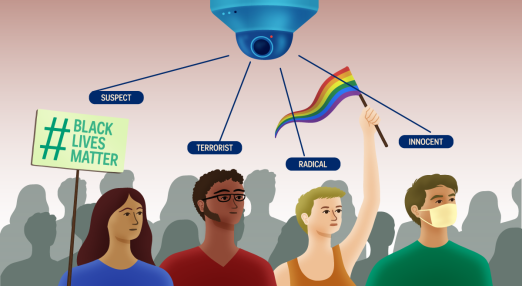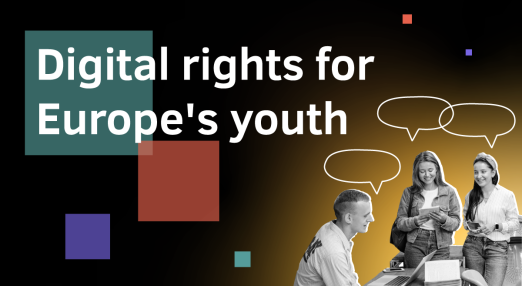Scroll more, sleep less. A Black Mirror-inspired truck in Warsaw advertises a disturbing social network… that doesn’t exist
Panoptykon’s campaign is being launched after the DSA has become fully effective with regard to VLOPs on 25 August. To comply with the new regulation, cybergiants must, among other things, introduce changes concerning their additive algorithms which they use to personalise users’ feeds. They must now explain how those algorithms work and offer at least one recommender system not based on tracking users’ personal data.
Filter resources
-

Scroll more, sleep less. A Black Mirror-inspired truck in Warsaw advertises a disturbing social network… that doesn’t exist
Panoptykon’s campaign is being launched after the DSA has become fully effective with regard to VLOPs on 25 August. To comply with the new regulation, cybergiants must, among other things, introduce changes concerning their additive algorithms which they use to personalise users’ feeds. They must now explain how those algorithms work and offer at least one recommender system not based on tracking users’ personal data.
Read more
-

Meta pledges to ask EU users for consent before showing behavioural ads
In a surprise announcement last Tuesday, Meta made the long overdue promise to finally ask its users for their consent before showing them behavioral ads – at least if they live in the European Union, EEA or Switzerland.
Read more
-

Regulating Big Tech in Europe with the Digital Services Act & Digital Markets Act
The EU’s latest flagship laws Digital Services Act (DSA) and Digital Markets Act (DMA) are in force, the regulatory structure is (slowly) being set up, the first Big Tech companies are suing in court, and the European Commission throws a party (yes, really). But what does this mean for people in their role as platform users and what’s coming next?
Read more
-

Digital rights for civil society and civil society for digital rights: how surveillance technologies shrink civic spaces
Digital technology has transformed civic spaces - online and offline. In our digital societies, characterised by injustice and power imbalances, technology contributes to shrinking civic spaces. And to defend civic spaces against surveillance, we need strong and resourced civil society organisations and movements.
Read more
-

2023: Important consultations for your Digital Rights!
Public consultations are an opportunity to influence future legislation at an early stage, in the European Union and beyond. They are your opportunity to help shaping a brighter future for digital rights, such as your right to a private life, data protection, or your freedom of opinion and expression.
Read more
-

The DSA fails to reign in the most harmful digital platform businesses – but it is still useful
The Digital Services Act (DSA) adopted by the European Parliament on 5 July 2022 was lauded by some as creating a “constitution for the internet” and a European response to the “digital wild west” created by Silicon Valley. But the DSA is far from perfect and much will depend on how well the new regulation is going to be implemented and enforced.
Read more
-

Foreign authorities are banning Google and Microsoft services from schools, the Czech Republic is floundering
Jan Cibulka, a journalist for iROZHLAS and member of the Big Brother Awards CZ Jury, organised by EDRi member Iuridicum Remedium, has investigated how Czech authorities and schools are approaching the protection of privacy when using distance learning tools. Such tools send sensitive information overseas, where US law gives intelligence agencies access to it. The tools do not guarantee that children's private chats will not be accessed by, for example, teachers. While the first regional governments in Europe are developing safer alternatives, in the Czech Republic the risk assessment remains up to individual schools. In practice, they have little choice.
Read more
-

EU Digital Services Act brings us closer to an inclusive, equitable internet
Strong enforcement of the DSA can bring human rights improvements, but real alternatives to the current dominant surveillance business model are still needed
Read more
-

Digital rights for Europe’s youth
The biggest youth platform in the world is joining the Platform Power Coalition for a Digital Services Act that empowers young people. European Youth Forum will bring youth voices to the coalition, vindicating that digital rights are youth rights. Young people should be able to enjoy their digital environment without fearing privacy violations, discrimination or manipulation. Here is what you need to know about this alliance.
Read more
-

The DSA should pave the way for systemic change
Today, 5 July, is a victorious day for human rights online as we embark on the next stage in our journey – real alternatives to the currently dominant surveillance business model. The European Parliament’s approval of the Digital Services Act (DSA) will bring many opportunities to limit the huge power Big Tech companies like Google, Meta (Facebook) and Amazon have over people and democracies. However, this regulation is only the first step in ensuring people’s rights online are protected, more work is needed for a better internet. Now, it is imperative that we see strong enforcement by regulatory authorities that will ensure the high human rights standards the new rules promise.
Read more
-

Consumer and digital groups in Europe and the U.S. call for a full ban on surveillance-based advertising
On 1 June, the Transatlantic Consumer Dialogue (TACD), that EDRi is part of, published a policy resolution on banning surveillance-based advertising. The invasive practices of collecting, sharing, and processing of individual data to deliver personalized advertising, has become the primary business model in the online advertising space. Surveillance advertising is promoted by the world’s largest technology companies, like Meta (Facebook) or Alphabet (Google), and is a key driver behind the spread of misinformation, undermining democratic discourse, economic and political equity, marketplace competition, privacy, public health, and basic consumer protections.
Read more
-

Elon Musk buying Twitter. What could possibly go wrong?
A new chapter of the surveillance capitalism saga happened just three days after the EU members adopted the final agreement on the Digital Services Act (DSA). The board of directors of Twitter accepted Elon Musk’s offer to buy the company for USD 44 billion. The deal is not closed yet, and now the ball is in Twitter’s shareholders to accept or reject the offer. This news has grabbed the media's attention worldwide and opened public discussions on how this would affect not only the features of Twitter but also freedom of speech in the digital sphere.
Read more
